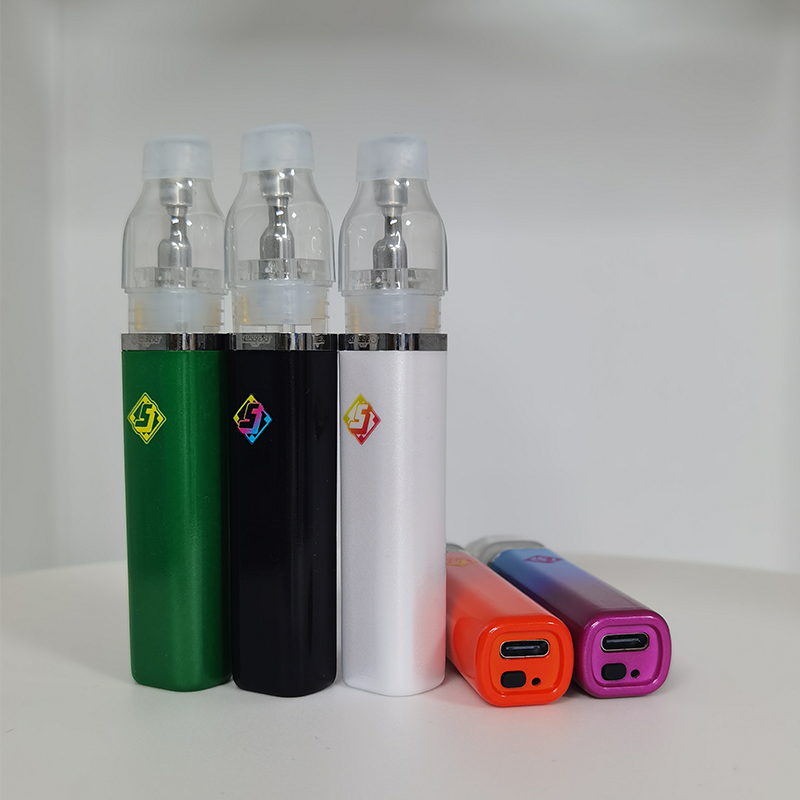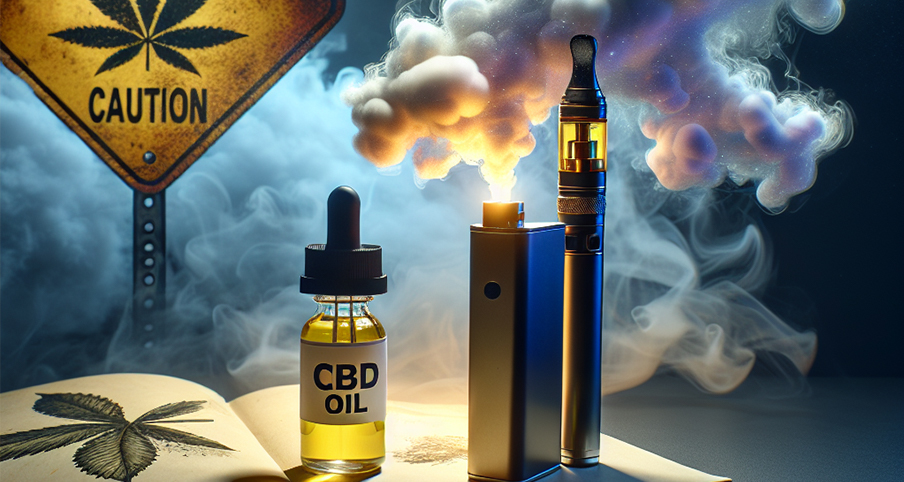The Rise of Vaping CBD Oil
As one of the newest trends in the expanding vape culture, vaping cannabidiol (CBD) oil has gained significant popularity. Many individuals, especially in regions where marijuana has been legalized, turn to CBD for its potential therapeutic benefits, such as alleviating anxiety, managing epileptic seizures, reducing inflammation, and improving sleep disorders.
What is CBD Oil?
CBD oil is derived from the flowers and buds of marijuana or hemp plants. Unlike tetrahydrocannabinol (THC), CBD does not typically produce a “high” or intoxication, as it contains minimal THC content. Federally, only hemp-derived CBD oil with less than 0.3% THC is legal in the U.S., although state laws may vary depending on local regulations regarding medicinal or recreational marijuana.
Vaping-Related Health Risks
Despite its potential benefits, vaping CBD oil poses significant health risks. The Centers for Disease Control and Prevention (CDC) have linked liquid vaping products to nearly 3,000 cases of serious lung illnesses, many of which resulted in hospitalizations. This condition, now termed EVALI (e-cigarette and vaping-associated lung injury), has claimed nearly 70 lives and is believed to have affected thousands more.
Vitamin E acetate, a substance used to dilute CBD oil, has been identified as a key culprit in many of these cases. The risks are particularly high for vape pens sourced from illicit dealers, online platforms, or personal acquaintances. At least 26 cases of EVALI involved vaping CBD oil.
Concerns About Long-Term Effects
Scientists, doctors, and researchers express ongoing concerns about the safety of inhaling CBD oil, particularly due to the unknown long-term effects. Heating vaping devices can trigger chemical reactions that may pose additional risks to lung health, especially in younger individuals.
Potential Side Effects of Vaping CBD
Vaping CBD can lead to various side effects, including:
- Diarrhea
- Dizziness
- Drowsiness
- Fatigue
- Impaired memory and thinking
- Nausea
- Stomach upset
- Vomiting
- Increased anxiety
- Changes in mood
- Changes in appetite
Regulatory Landscape
The 2018 Farm Bill declassified CBD from marijuana under the Controlled Substances Act, but the Food and Drug Administration (FDA) still regulates it. Currently, marketing CBD in food or as a supplement is illegal at the federal level. The FDA also cautions that CBD might interact with other medications and negatively impact liver health and male fertility.
Mislabeling and Quality Concerns
Due to the lack of standardized certification, fake CBD oil products have flooded the market, sometimes containing harmful chemicals. A study commissioned by the Associated Press (AP) revealed that:
- Ten out of 30 tested vapes contained synthetic marijuana.
- Eight oils had no detectable level of CBD.
- Fourteen contained less than 0.3% CBD by weight.
- Six ranged between 1.07% and 8.87% CBD by weight.
Mislabeling affects up to 70% of CBD products sold online, according to some research.

Sluggers Hit Disposable 2G 2ml THC CBD Empty Vape Pen
The Sluggers Hit Disposable 2G vape pen is the latest innovation in the vaping world, offering a potent and flavorful experience for cannabis enthusiasts. Known for its high THC content and premium quality, this disposable vape pen is designed to deliver a powerful, long-lasting hit every time.
Alternatives to Vaping CBD
For those interested in the potential benefits of CBD without the risks associated with vaping, consider exploring other forms, such as beverages, capsules, edibles, gummies, nasal sprays, and tablets. However, these alternatives are also unregulated. Look for manufacturers that use third-party testing to verify their product’s ingredients and contents.
Conclusion
While vaping CBD oil remains a popular trend, the associated health risks and regulatory challenges highlight the need for caution. Consumers are urged to stay informed and choose products from reputable sources to ensure safety and efficacy.


